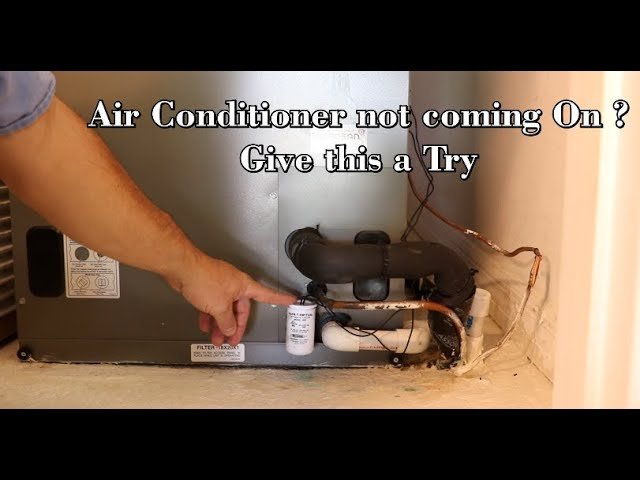Can Air Conditioners Leak Gas? Understanding The Potential Risks
Yes, air conditioners can leak refrigerant gas. This can be caused by damaged or corroded components, improper installation, or regular wear and tear. If you suspect a gas leak, it is important to have an HVAC professional inspect and repair the air conditioner to prevent further damage and ensure safe operation.
Imagine coming home after a long, tiring day to a cool and refreshing breeze from your air conditioner. The relief it brings is unmatched, making it a cherished appliance for many homeowners and renters.
But have you ever wondered if your trusty air conditioner could potentially leak harmful gases into your living space? This is a question that not only sparks curiosity but also raises concerns about the safety and well-being of those who rely on their AC units. Whether you have a basic understanding of how air conditioners work or consider yourself well-versed in the realm of refrigerant leaks, understanding the potential hazards and safety considerations related to gas leaks is crucial.
In this blog article, we will explore the topic of whether air conditioners can leak gas, uncovering the health risks involved and the costly repairs that may be required. So, if you are a homeowner or renter who owns or uses an air conditioner, you’ve come to the right place. Get ready to dive into the important world of AC maintenance and safety.
Your comfort and welfare depend on it.
Understanding Air Conditioner Refrigerant
Before delving into the question of whether air conditioners can leak gas, it’s essential to understand the role of refrigerant in these cooling systems. Refrigerant is a crucial component that facilitates the transfer of heat, allowing the air conditioner to cool the air inside your home or office.
How Does Refrigerant Work?
Refrigerant works by absorbing heat from the indoor air, effectively lowering its temperature. This heat absorption process occurs within the evaporator coil. Once the refrigerant has absorbed the heat, it transforms into a gas and moves to the condenser coil, located in the outdoor unit of your air conditioner.
At the condenser coil, the refrigerant releases the heat it absorbed from your indoor air. As a result, the refrigerant condenses back into a liquid state and gets pumped back to the evaporator coil, ready to absorb more heat.
The Importance of Proper Refrigerant Levels
To ensure optimal performance, air conditioners need the right amount of refrigerant. If the refrigerant levels are too low, the cooling efficiency of the system will be compromised. On the other hand, excessive refrigerant can also cause issues. It’s crucial to strike the right balance.
Regular maintenance and inspections by HVAC professionals are essential to monitor and maintain proper refrigerant levels. These professionals can also detect and address any potential leaks promptly to prevent further damage and ensure the longevity of your air conditioning system.
Can Air Conditioners Leak Gas?
Now that we understand the basics of how air conditioner refrigerant works, let’s address the burning question: Can air conditioners leak gas?
The answer is yes, air conditioners can indeed leak refrigerant gas. Several factors can contribute to refrigerant leaks, but the most common causes include:
- Wear and tear over time
- Corrosion or damage to the coils
- Lack of proper maintenance and inspections
- Manufacturing defects
When a refrigerant leak occurs, it can lead to a variety of issues for both your air conditioner and your health.
The Health Risks of Refrigerant Leaks
Refrigerant gases, such as Freon or R-410A, can be harmful when released into the air you breathe. These gases can displace oxygen, leading to various health risks. Some potential health effects of refrigerant leaks include:
- Headaches and dizziness
- Nausea
- Respiratory issues and breathing difficulties
- Irritation of the eyes, nose, and throat
If you suspect a refrigerant leak in your air conditioner, it’s crucial to take immediate action. Contact a qualified HVAC professional to assess and repair the leak to protect your health and the well-being of everyone in your home or office.
Signs of a Refrigerant Leak
Identifying a refrigerant leak early is vital for prompt repairs. Here are some common signs that can indicate a refrigerant leak in your air conditioner:
- Insufficient cooling
- Ice buildup on the refrigerant lines or evaporator coil
- Hissing or bubbling noises near the AC unit
- Foul odors coming from the vents
- An increase in energy bills
If you notice any of these signs, it’s crucial to contact an HVAC professional to diagnose the issue and address any potential refrigerant leaks.
The Importance of Timely Repairs
When it comes to refrigerant leaks, timely repairs are essential. Ignoring or delaying repairs can lead to more significant problems and additional expenses in the long run.
One of the primary concerns with refrigerant leaks is the impact on the performance and efficiency of your air conditioner. When the refrigerant levels are low, the cooling capacity of the unit is reduced, resulting in insufficient cooling and discomfort in your living or working space.
Additionally, operating an air conditioner with a refrigerant leak can also lead to costly damage to other components of the system. The compressor, which plays a vital role in the refrigerant cycle, can suffer from overheating or failure if the refrigerant levels are not properly maintained. Replacing a faulty compressor can be a significant expense.
Moreover, refrigerant leaks contribute to environmental harm. Many refrigerants used in air conditioners are known to deplete the ozone layer, contributing to global warming and climate change. By promptly repairing refrigerant leaks, we can minimize our impact on the environment and work towards a more sustainable future.
Preventing Refrigerant Leaks
While refrigerant leaks can occur due to various factors, there are steps you can take to minimize the risk and prolong the lifespan of your air conditioner:
- Schedule regular maintenance with a qualified HVAC professional
- Keep the area around the outdoor unit clean and free from debris
- Change air filters regularly to prevent airflow restrictions
- Avoid DIY repairs or modifications to the air conditioner
By following these preventive measures, you can mitigate the chances of refrigerant leaks and ensure the longevity and efficiency of your air conditioning system.
In Conclusion
Air conditioners can indeed leak gas, and refrigerant leaks pose both health risks and potential damage to your cooling system. It’s crucial to be aware of the signs of a refrigerant leak and take prompt action to address any issues. Regular maintenance and inspections by HVAC professionals are vital for monitoring refrigerant levels and detecting leaks early. By prioritizing the maintenance and repair of your air conditioner, you can enjoy the comfort it provides while ensuring the safety and well-being of everyone in your home or office.
How to Recharge Your Car's AC System (Fast and Easy)
Can an air conditioner leak gas?
What are the signs of a refrigerant leak?
Is a refrigerant leak dangerous?
How can a refrigerant leak be fixed?
Can I fix a refrigerant leak myself?
Final Summary: Understanding and Addressing Refrigerant Leaks in Air Conditioners
In conclusion, air conditioners can indeed leak gas, specifically refrigerant. Understanding the role of refrigerant in cooling systems is essential in recognizing the potential for leaks.
Refrigerant works by absorbing heat from indoor air, transforming into a gas, and then releasing the heat outside. It is crucial to maintain proper refrigerant levels for optimal performance.
Several factors can contribute to refrigerant leaks, including wear and tear, corrosion, lack of maintenance, and manufacturing defects. Refrigerant leaks can be harmful to health, causing headaches, nausea, respiratory issues, and irritation of the eyes, nose, and throat. Identifying signs of a refrigerant leak, such as insufficient cooling, ice buildup, hissing noises, foul odors, or increased energy bills, is crucial for prompt repairs.
Timely repairs are essential to prevent further problems and expenses. Ignoring refrigerant leaks can lead to reduced cooling capacity, damage to other components, and environmental harm. Repairs should be conducted by qualified HVAC professionals to ensure safety and efficiency.






